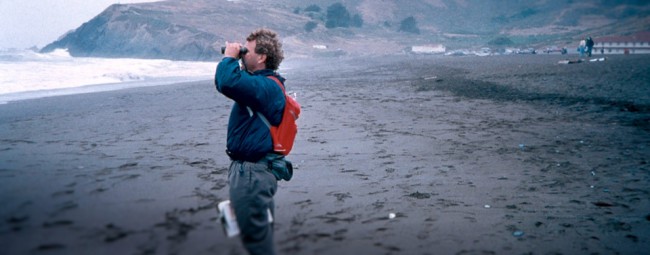My latest article, The Admission of Necessary Ignorance, is up at SHIFT magazine as part of its tenth, science-themed, edition. Check out the whole magazine! SHIFT is back in business after several months’ hiatus and they are gradually restoring the first nine issues (each of which includes an article of mine) to the new website. Here’s the beginning of my article:

image licensed cc-by-2.0: NOAA National Ocean Service via flickr
The title of this article comes from an interview earlier this year with the distinguished biologist and philosopher Richard Lewontin. Richard has fought for years (often alongside his more famous colleague Stephen J Gould) with scientific absolutists of every stripe, from genetic determinists like Richard Dawkins to the neo-phrenologist pop neuro-“scientists” who would have us believe that we will soon understand what it means to be human (and accordingly understand and be able to modify all human behaviour) by deciphering the patterns of coloured lights in brain scans.
Richard, now in his mid-80s, begins the interview by asserting “You can’t be overly humble.” We all want to know the truth, to have something we can believe (and believe in) with certainty, but Richard is here to tell us the limitations of science and the dangers of believing we will ever know more than a tiny fraction of the whats, hows and whys of our lives and our world.
Read the rest at SHIFT Magazine.





1) Reports of “scientific absolutists” have been greatly exaggerated.
2) Dawkins can hardly be called a “genetic determinist” since he subscribes to the gene-environment interaction (G x E) model of evolution.
3) Please name a few “neo-phrenologist pop neuro-“scientists” who would have us believe that we will soon understand what it means to be human (and accordingly understand and be able to modify all human behaviour) by deciphering the patterns of coloured lights in brain scans.” I am curious about such an odd-sounding species.
4) Some laypersons may in fact be uninformed about “the limitations of science and the dangers of believing we will ever know more than a tiny fraction of the whats, hows and whys of our lives and our world.” I doubt that many actual scientists need such reminders.
5) The increasing frequency at which I find myself defending science or scientists in general from straw-man claims of scientism, reductionism, etc. or from nebulous, hyperbolic condemnations by intelligent, educated people is astonishing to me.
Hi Richard: It would take a long essay to reply to all your comments, but I respect your opinion and thought I would just offer a couple of thoughts in partial response:
• I was not damning all or even a majority of scientists as being adherents to ‘scientism’
• I have been dismayed throughout my life at the willingness of a small number of self-proclaimed ‘scientists’ to make exaggerated and arrogant claims about their models in order to exploit the craving of many uninformed people (and the media) for simple answers, miracle cures and magical thinking. Neuro-“science” now seems to house a disproportionate number of these opportunistic hucksters, perhaps because this area of study is so much in vogue. I think such people, and the sometimes cult-like thinking they encourage, are extremely dangerous. History is replete with examples of what this can lead to: belief in the miraculous powers of potions, practices and procedures; blood-letting and lobotomies; and the whole BF Skinner behaviourism and human reengineering cult of the 1960-70s are examples.
• This article in the New Yorker, by someone who loves neuro-“science”, explains really well why I am deeply suspicious about it becoming the next dangerous “scientific” reductionist folly: http://www.newyorker.com/news/news-desk/neuroscience-fiction